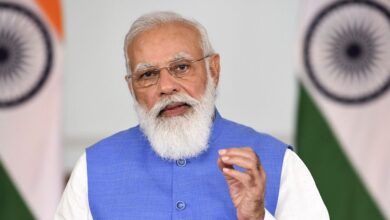By William J. Ford
Republican Dan Bishop narrowly won a special election this week for a seat in North Carolina’s 9th Congressional District, which some political analysts point to as a small boost to President Donald Trump’s reelection bid next year.
Virginia Harris, president of 100 Black Women Inc, cited that as an example of why voting, specifically for Black males, is so important.
“I was very disappointed in the North Carolina election,” Harris said. “People did not show up to vote. We do our very best educating, engaging and empowering young people to vote and then they don’t show up and cast a ballot.”
Harris and others spoke Friday about Black males voting at the Congressional Black Caucus Foundation’s 49th Annual Legislative Conference at the Washington Convention Center in northwest D.C.
According to U.S. Census data, slightly more than 17,000 Blacks voted in the 2016 presidential election. In last year’s election, about 15,200 voted, a nearly 13 percent decrease.
Rep. Bennie Thompson (D-Mississippi), who led the discussion, explained the best way to make change always come from voting.
“If you don’t engage [in] the process, then you let people get elected who might not have your best interest,” he said. “In America, we don’t fight. … We go to the polls and vote. That’s what we all need to encourage our young men and young women.”
The talk became interactive when Damien Hooper-Campbell, 40, chief diversity officer for eBay in San Jose, California, asked young Black men in the room to simply explain “what’s on your minds?”
Instead of adults talking to them, three students from the University of Connecticut said some adults don’t respond to inquiries when they seek basic information.
In addition, the young men said some said adults “talk down” to them, assuming they’re too young and wouldn’t understand complex subjects.
“We’re on social media and at a place where we receive information 24 hours a day,” said Mason Holland, 17, a freshman studying political science at Connecticut from Hackensack, New Jersey. “Information is coming at us, but that is how we retain it and it is not all bad.”
Desmond Taylor, 25, a 2016 Howard University graduate from Houston, said some of his peers must take the proper steps to introduce themselves to their elders, partly by learning to accept constructive criticism.
Taylor, who does community service work for Houston Mayor Sylvester Turner, said young adults should be frustrated if they don’t receive a response when seeking internship, jobs or other inquiries.
“Sometimes, [politicians] are overwhelmed — they’re human, too,” he said.
So non-millennials offered a suggested to meet with the young generation in their neighborhoods and learn from social media interaction.
“It’s about having that conversation and putting down that pride and saying, ‘we are better together,’” Hooper-Campbell said.
This article originally appeared in The Washington Informer.





